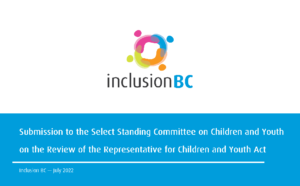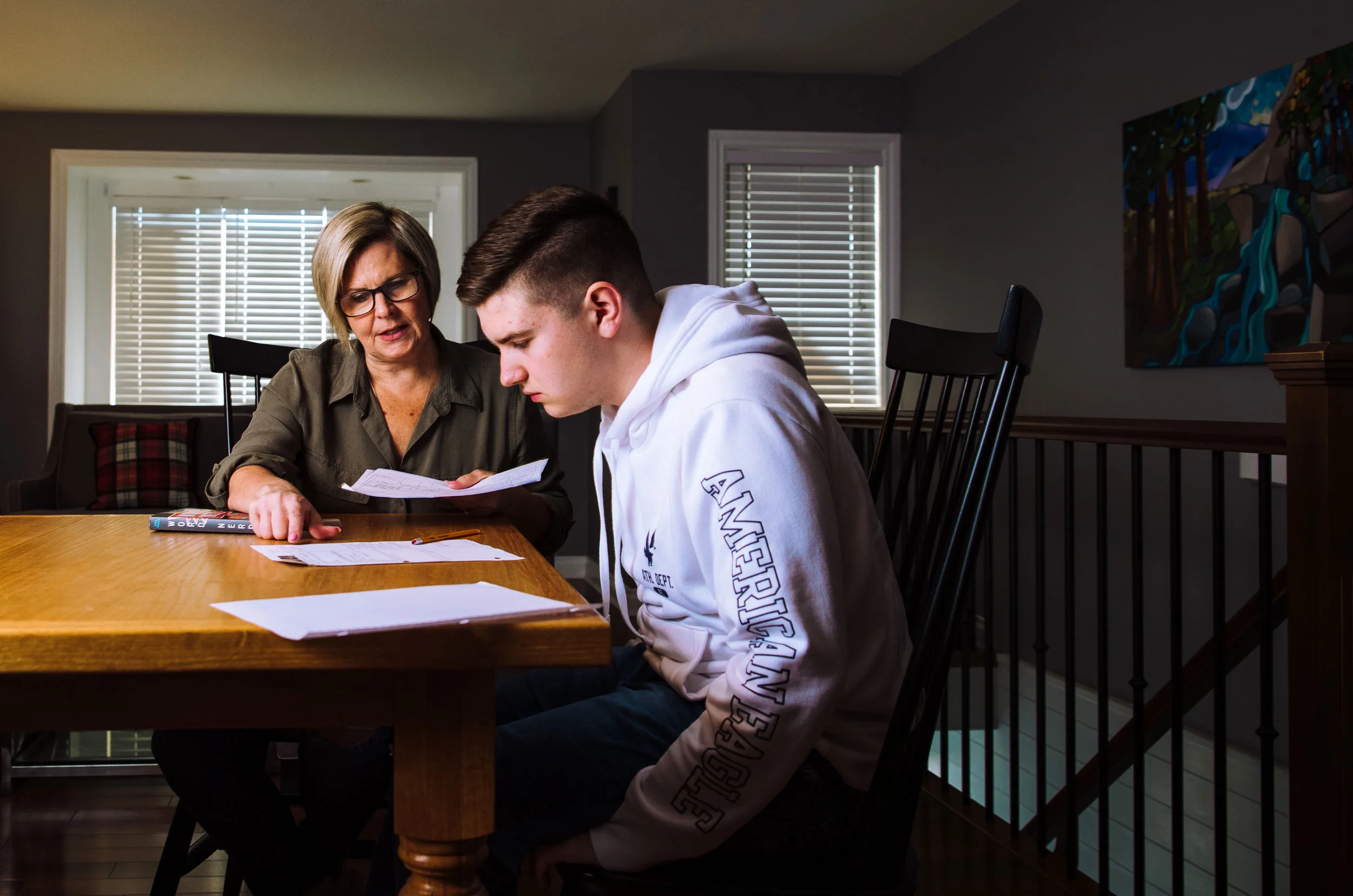
In July 2022, Inclusion BC made a submission to the Select Standing Committee on Children and Youth on the Review of the Representative for Children and Youth Act. In our submission, we identified key points as to why expanding the mandate of the Representative would be beneficial for children, youth, and young adults with disabilities and their rights.
Here is a brief version of our submission:
The Representative for Children and Youth plays a significant role in advocating for the rights of children, youth, and young adults with disabilities in B.C. This particularly vulnerable group receives services and supports that go beyond only the Ministry of Children and Family Development and an integrated, whole-child approach to the advocacy and monitoring of the services that impact their lives is necessary. We believe expanding the mandate of the Representative is very much needed to ensure that, when the Representative needs to be involved, they are able to inquire and advocate in all necessary areas to advance the child or youth rights. Children and youth’s lives do not unfold in silos that follow government structures, a holistic view is necessary to properly address their needs.
Our Community Inclusion Advocacy Program
Inclusion BC provides individual advocacy support to children, youth, and adults with disabilities and their families through our Community Inclusion Advocacy Program. We support an average of 1000 situations every year, 52% of these situations involve a child or youth.
Here are the main topics among many others addressed by our Advocacy Team over the last year :
- 41% Issues about Education
- 14% Transition and supports by Community Living BC
- 9% Early childhood supports by the Ministry of Children and Family Development
- 4% Health – mostly access to Nursing Support Services for children
Our continuous concern is the challenges children experience to have equitable access to education, which is the topic that dominates our advocacy work.
The exclusions in education have an impact on services provided by the Ministry of Children and Family Development. Parents have to find care for their children so they can work and provide for them. When equitable access to education is denied to a student, their families enter into crises. As families look to the Ministry of Children and Family for support, they find very limited options to meet their needs.
The Nursing Support Services program provided by the Ministry of Health to children and youth becomes a critical support to ensure a child or youth can access their education and community, they also provide much-needed respite for families. As youth with medical complexities transition to services by Community Living BC, the RCY advocates are not able to offer advocacy in the whole range of issues needed such as mental health, housing supports, and financial supports.
Inclusion BC and RCY advocates have frequently collaborated in supporting children, youth, and their families in complex situations. Often times, while Inclusion BC advocates work on the education and health barriers, the RCY advocates work on those related to the Ministry of Children and Family Development. However, the type of inquiries and advocacy that the RCY can do become limited due to their mandate and leaves out two critically important systems: education and health.
Expanding the RCY mandate
The Representative has articulated clearly in their submission for this process the importance of expanding the mandate of their office. Inclusion BC fully supports this approach and particularly to make the Representative’s mandate broad enough to include all publicly funded services for all children and youth. As well as giving the Representative systemic advocacy functions in relations to services to young adults who were formerly in any type of care and young adults eligible or receiving services from Community Living BC.
Extending the Representative’s mandate for individual and systemic advocacy would increase the oversight of these systems and allow for systemic changes to emerge while children, youth, young adults and their families across the province are more supported in their advocacy to access the services and supports needed to live in community.
A specific addition to the Representative’s recommendations is to also include the UN Convention on the Rights of Persons with Disabilities (UNCRPD) in the list of international human rights instruments that the Representative must take into account in carrying out their functions under the Act in relation to children, youth, and not only for young adults eligible for CLBC services.
At the end of our submission, we made four recommendations for the Representative.
- Expand the mandate of the Representative to include all publicly funded services that impact children and youth with disabilities: education, health, childcare, mental health, or any other.
- Expand the mandate of the Representative to include young adults under any status or agreement under the Child and Family Community Act without the restriction of the time when they were in care and to ensure this includes children and youth who have been under voluntary or special needs agreements.
- Include the UN Convention on the Rights of Persons with Disabilities (UNCRPD) in the list of international human rights instruments that the Representative must take into account in carrying out their functions under the Act in relation to children, youth, and young adults.
- Expand the mandate of the Representative to give them authority to monitor, review, audit, and conduct research with respect to quality assurance processes for all designated services.


